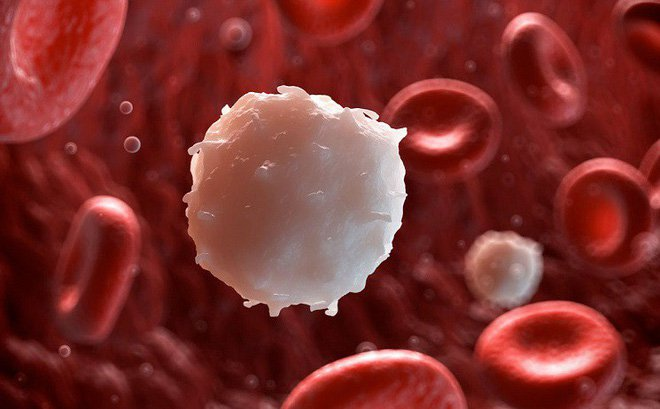How to diagnose and treat interstitial nephritis?
This is an automatically translated article.
Interstitial nephritis is a disorder that affects the area around the nephron leading to inflammation of the kidney. Interstitial nephritis can be acute or chronic but usually has a good prognosis. However, there are still about one third of cases requiring extra-renal dialysis while waiting for the kidney to recover, so early diagnosis and treatment of interstitial nephritis is very important.
1. What is interstitial nephritis?
Interstitial nephritis is a form of nephritis that affects the interstitial tissue of the kidney surrounding the renal tubules. Classification of interstitial nephritis can be according to the cause or the course of the disease. Interstitial nephritis is classified according to the course of the disease, including acute and chronic tubulointerstitial nephritis. Besides, the classification of interstitial nephritis according to the cause of the disease includes:
Bacterial interstitial nephritis is called pyelonephritis - pyelonephritis Non-bacterial interstitial nephritis is called interstitial nephritis. The causes of interstitial nephritis can be toxic or metabolic disorders.

Viêm thận kẽ do rối loạn chuyển hóa gây ra
2. How is interstitial nephritis diagnosed?
Interstitial nephritis accounts for about 10-15% of cases of acute renal failure with histological findings including inflammatory response, edema, and tubular cell damage. Although drugs are the main culprit in up to 70% of cases of interstitial nephritis, other causes such as bacterial infections, immune disorders, or unknown causes can still occur. Essential clinical manifestations in the diagnosis of acute nephritis include:
Fever : seen in more than 80% of cases Arthralgia , eosinophilia: seen in more than 80% of cases Skin rash: seen in approx. 25-50% of cases Hematuria (90%), sometimes pyuria (including eosinophils) and white blood cell casts Proteinuria may be present, especially in cases of interstitial nephritis caused by non-steroidal anti-inflammatory drugs (NSAIDs). NSAIDs) cause. Wright stain can detect eosinophilia

90% trường hợp viêm thận kẽ đều bị đái ra máu hoặc mủ
3. Treatment of interstitial nephritis:
Treatment method for interstitial nephritis will depend on the cause of the disease and the course of the condition (acute interstitial nephritis or chronic interstitial nephritis) the disease is divided into the following forms:
Acute interstitial nephritis caused by infection Nephrotoxicity:
In case of drug-induced acute renal failure: immediately discontinue the drug causing renal failure and compensate for circulating volume to maintain central venous pressure between 8-10 mmHg. Adjust blood pressure, maintain systolic blood pressure 90-130 mmHg. If treated early, the patient's kidney function can recover and leave no sequelae. In case of acute tubular necrosis due to toxicity: it is necessary to treat aggressively by stopping toxic drugs, ensuring balance. with water-electrolyte, symptomatic treatment of acute renal failure, extra-renal dialysis Acute interstitial nephritis due to immune-allergic mechanisms: treatment by immediately stopping nephrotoxic drugs, using therapy Corticosteroids in some cases and treatment of acute renal failure
Chronic toxic interstitial nephritis: there is no specific treatment for patients with chronic interstitial nephritis caused by intoxication with phenaxetine-based drugs and non-drugs - other steroids. These drugs must be discontinued first and most patients will receive symptomatic treatment such as correction of electrolyte balance, symptomatic treatment of renal failure.

Tùy nguyên nhân gây bệnh để có phương pháp điều trị phù hợp
Lead and heavy metal interstitial nephritis: there is no specific treatment for patients with chronic interstitial nephritis due to lead and other heavy metal toxicity. The treatment will be the treatment of the causes and symptoms of the disease
Interstitial nephritis caused by metabolic disorders: mainly treating the main disease, in addition, treating according to the causes and symptoms such as hypercalcemia, deposition urate in gout,...
Age-related interstitial nephritis: clinical manifestation is a decrease in the ability of the kidneys to concentrate urine (nocturia, decreased urine density and osmolality). Treatment is mainly symptomatic treatment
Interstitial nephritis caused by malignancies: seen in acute myeloid leukemia, chronic myeloid leukemia or lymphocytic leukemia. Treatment is the main disease treatment combined with symptomatic treatment.
However, the reality is that acute interstitial nephritis usually has a good prognosis and rarely progresses to end-stage renal failure. Poor prognostic factors include prolonged illness and advanced age. In addition to supporting and eliminating the cause, it is possible to use high-dose, short-term prednisolone in cases of severe interstitial nephritis due to drug allergies.
Vinmec International General Hospital with a system of modern facilities, medical equipment and a team of experts and doctors with many years of experience in medical examination and treatment, patients can rest assured to visit. examination and treatment at the Hospital.
To register for examination and treatment at Vinmec International General Hospital, you can contact Vinmec Health System nationwide, or register online HERE.
This article is written for readers from Sài Gòn, Hà Nội, Hồ Chí Minh, Phú Quốc, Nha Trang, Hạ Long, Hải Phòng, Đà Nẵng.





